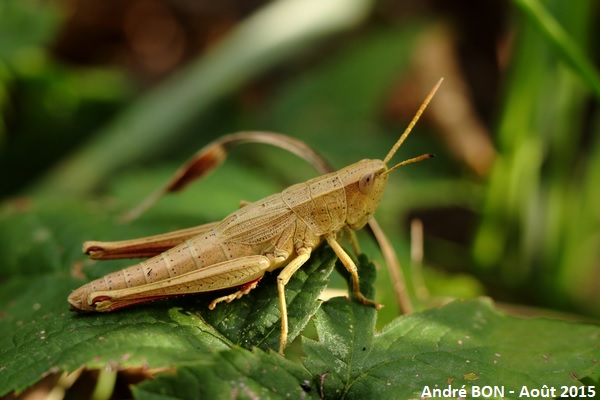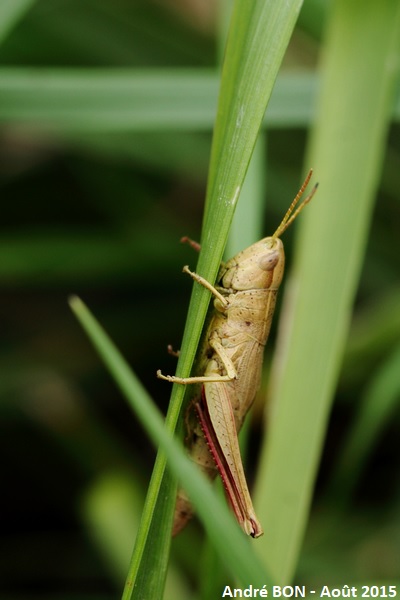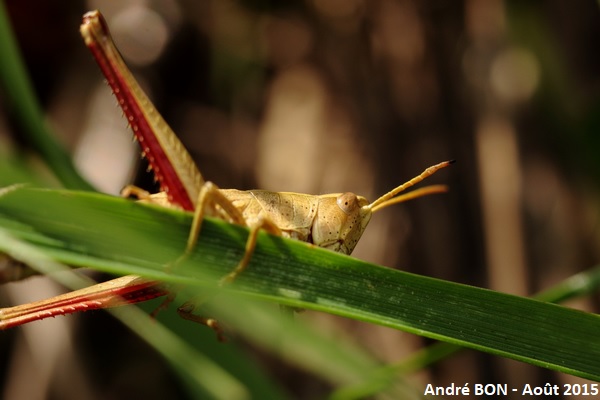


| Large Gold Grasshopper (Chrysochraon dispar (Germar, 1834)) |



|
|
Scientific name: Chrysochraon dispar (Germar, 1834) Common name: Large Gold Grasshopper French name: Criquet des clairières Order: Orthoptera Family: Acrididae Wingspan : Males: 16-19 mm. Females: 22-30 mm. Biotope: Damp habitats, damp meadows, river banks, clearings, woodland edges. Geographic area: Northern and temperate areas of Europe and Asia, missing in the British Isles and in Japan. Observation period : June to October. |
The Large Gold Grasshopper shows an important sexual dimorphism. Females, noticeable by their large size, are a pale brown to beige or golden yellow colour. The complete body is covered by sparse black dots. The hind tibias and the underside of the hind femora are red. There is a dark band at the back of the eye extending on the pronotum. The tegmina are just slightly longer than the pronotum. You can find some females without red colour on the tibias or on the opposite with a completely red body. Males are a bright green colour with metallic sheen. The underside of the hind femora is yellow and the hind knees are darkened. The tip of the tegmina almost reaches the tip of the abdomen which is pointed. The hind wings, hidden under the tegmina, are very short. You can occasionally find , for both sexes, forms will well developed wings exceeding the tip of the abdomen. These forms are able to fly. Females lay their eggs in hollow stems. |
| [To know more about the Large Gold Grasshopper] [Next picture] [Top] |

|
Here is one female with the typical pale brown colour with small black dots. |
| [To know more about the Large Gold Grasshopper] [Next picture] [Previous picture] [Top] |

|
The tibias and the underside of the femora are red. |
| [To know more about the Large Gold Grasshopper] [Previous picture] [Top] |

|
I just need to observe one male now. |